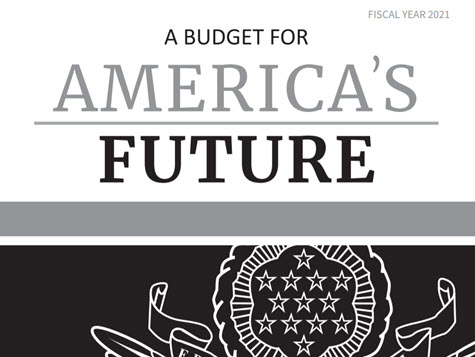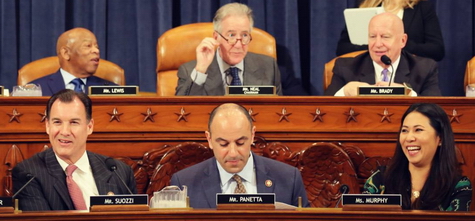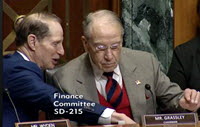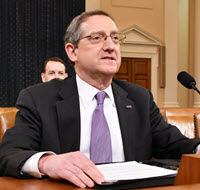
Senate Majority Leader Mitch McConnell (R-KY) unveiled a “Phase III” coronavirus economic stimulus proposal on March 19 that includes a number of tax provisions important to real estate – including a temporary reinstatement of the net operating loss carryback; relaxation of the current-law restrictions business interest deductions; and long-sought technical corrections to several provisions in the 2017 tax code overhaul (e.g. qualified improvement property).
The Coronavirus Aid, Relief, and Economic Security (CARES) Act will be subject to change or additions as Democratic lawmakers and the White House with Republicans engage in urgent negotiations to produce a final bill by early next week. A number of tax provisions in the current package affecting real estate include:
- Temporarily increasing the threshold of deductible business interest under section 163(j) from 30% to 50% of EBITDA in 2019 and 2020.
- Allowing a full 5-year carryback of net operating losses from 2018, 2019, and 2020 with no 80% income limitation.
- A technical correction to the Tax Cuts and Jobs Act (TCJA) of 2017 cost recovery period for qualified improvement property.
- A suspension of the new limitation on active losses of a pass-through business (section 461(l)) until 2021.
- A technical correction to TCJA downward attribution of stock ownership rules.
Other noteworthy tax provisions in the bill:
- Allows employers to defer payment of employer portion of Social Security tax (6.2%) in 2020, with the deferred amount payable in 2021 (50%) and 2022 (50%)
- Provides recovery checks of up to $1,200 for individuals, $2,400 for married couples. The rebates are increased by $500 for every child. The rebates phase out for individuals with incomes above $75K and married couples above $150K.
- Extends the filing date for income tax returns to July 15
- Permits postponement of quarterly estimated tax payments due on April 15 and July 15 until October 15
- Waives 10% early withdrawal penalty for retirement distributions up to $100K for coronavirus-related purposes. Provides favorable rules that spread out income recognition, allow for recontribution of withdrawals, and create additional flexibility for plan loans.
- Allows non-itemizers to deduct up to $300 in charitable donations in 2020.
- Suspends AGI limitation on charitable contributions by individuals and increases the AGI limitation on corporations to 25% in 2020.
- Accelerates access to corporate AMT refundable credits.
- Allows companies to recover overpayments of tax associated with TCJA one-time repatriation toll charge.
The full text of the CARES Act is available here and a lengthier summary is available here. Additional Reference: Deloitte’s Tax News & Views March 20 summary.
Cancellation of Indebtedness (COD) Income
The Real Estate Roundtable today asked Treasury Secretary Mnuchin and IRS Commissioner Charles Rettig to act quickly and use their broad authority to provide additional emergency tax relief that will help discourage permanent business closures, layoffs, and consumer bankruptcies.
Specifically, The Roundtable urges the Administration to waive cancellation of indebtedness (COD) income for all taxpayers for events generating COD income between March 1 and August 31, 2020. (Roundtable COD letter, March 20)
- Treasury has the authority to temporarily suspend COD income for one year under the statutory disaster relief tax provisions. Waiving COD income will help facilitate private parties’ ability to engage in debt forgiveness, debt cancellation, and debt restructuring events that would not be necessary in ordinary times.
- As the Roundtable letter explains, the action will free up much-needed financial resources that businesses can use to avoid force reductions and layoffs. For families and individuals, waiving COD income will promote the mutual modification of obligations, including credit card debt, mortgages, student loans, and small business loans – helping them avoid bankruptcies and/or large, unwarranted tax bills.
- The Roundtable also intends to work with Congress to ensure that it provides a permanent exemption of COD income that accrues during this extraordinary and unforeseeable public health and economic crisis.
- The Roundtable is also working with other real estate trade organizations to persuade Treasury to use its disaster relief authority to modify the deadlines applicable to like-kind exchange transactions. The relief will avoid penalizing transactions delayed by the economic crisis.
As the repercussions of the corona pandemic continue to unfold, The Roundtable’s Tax Policy Advisory Committee (TPAC) continues to work on tax policies that benefit American workers, businesses and the overall economy.









